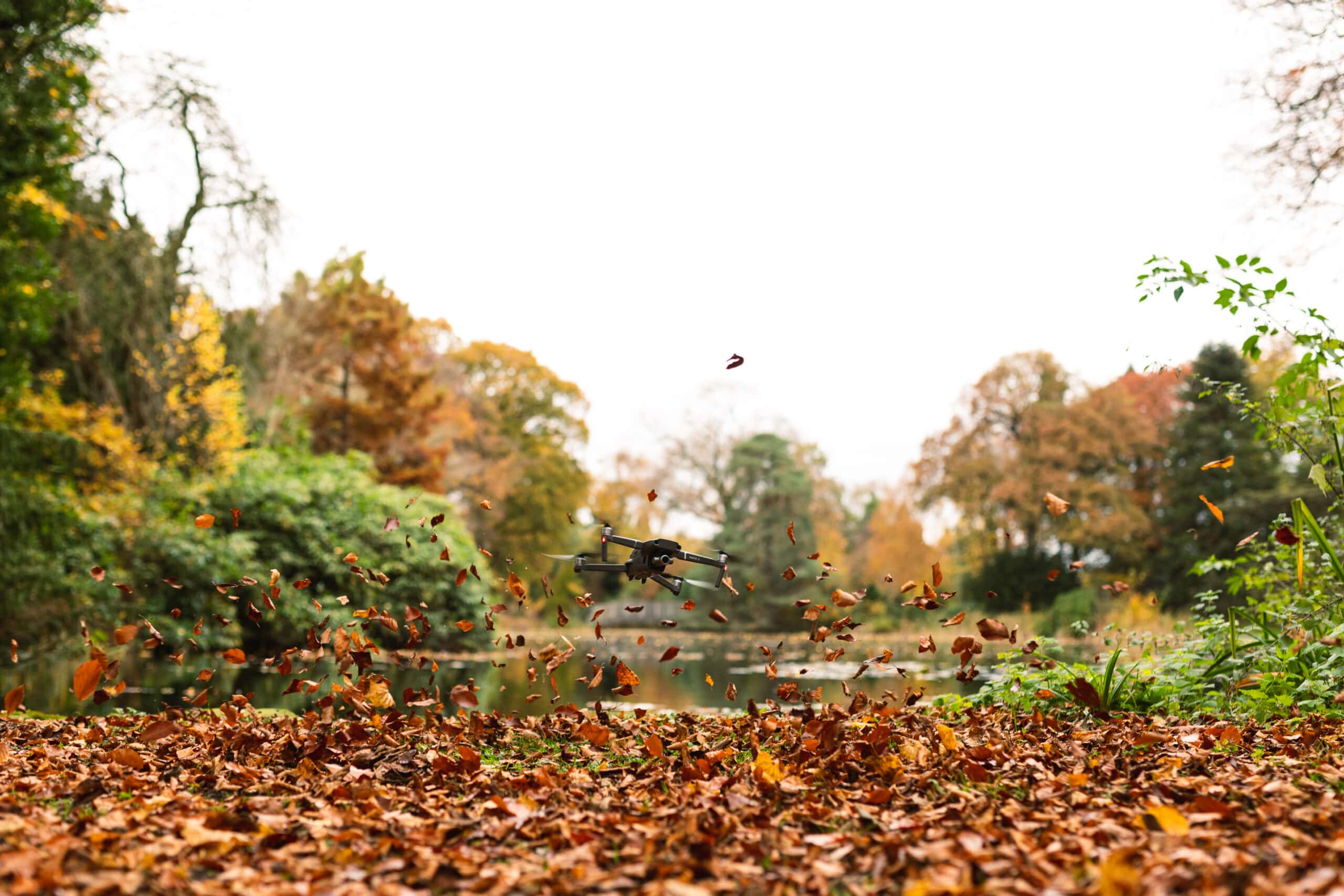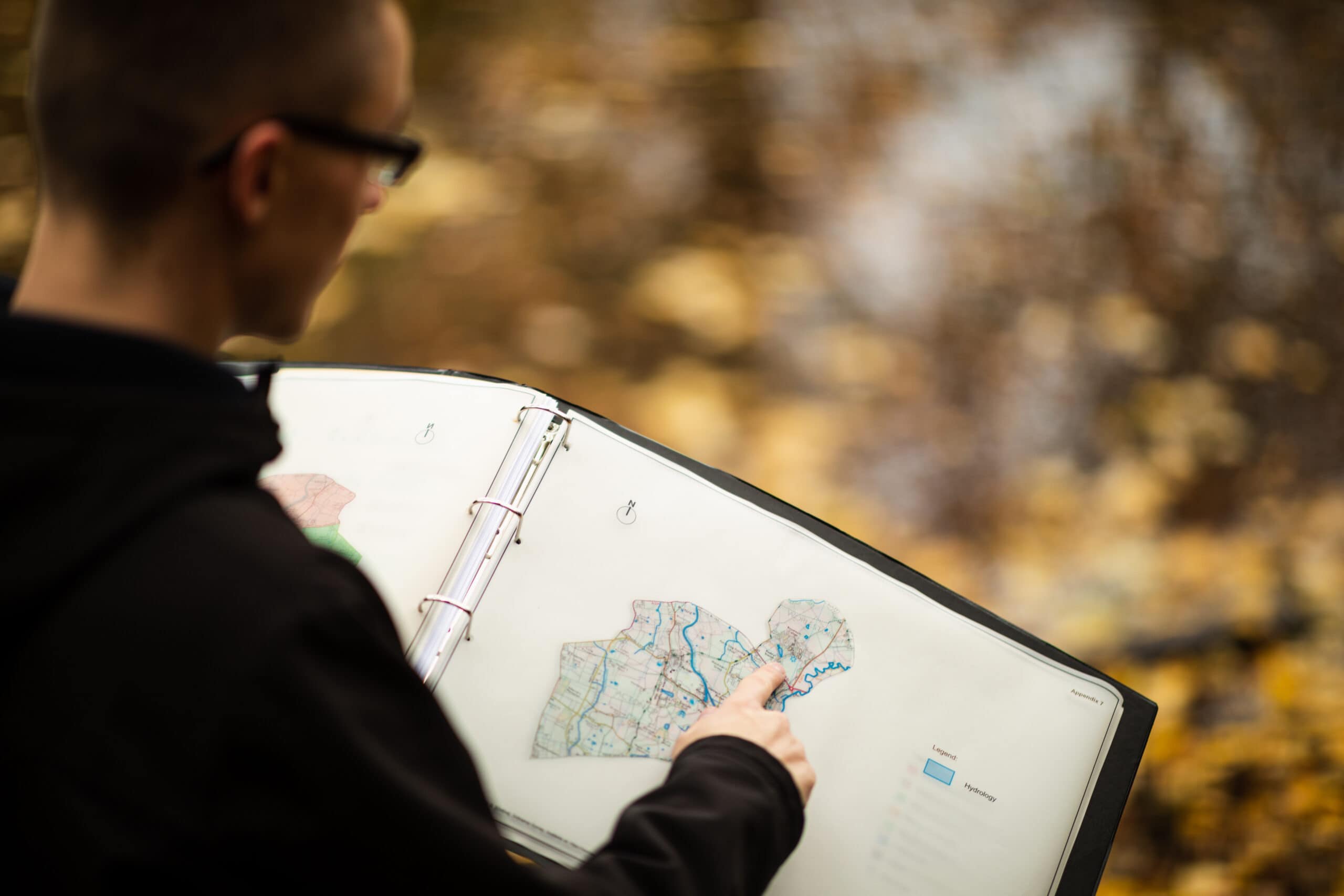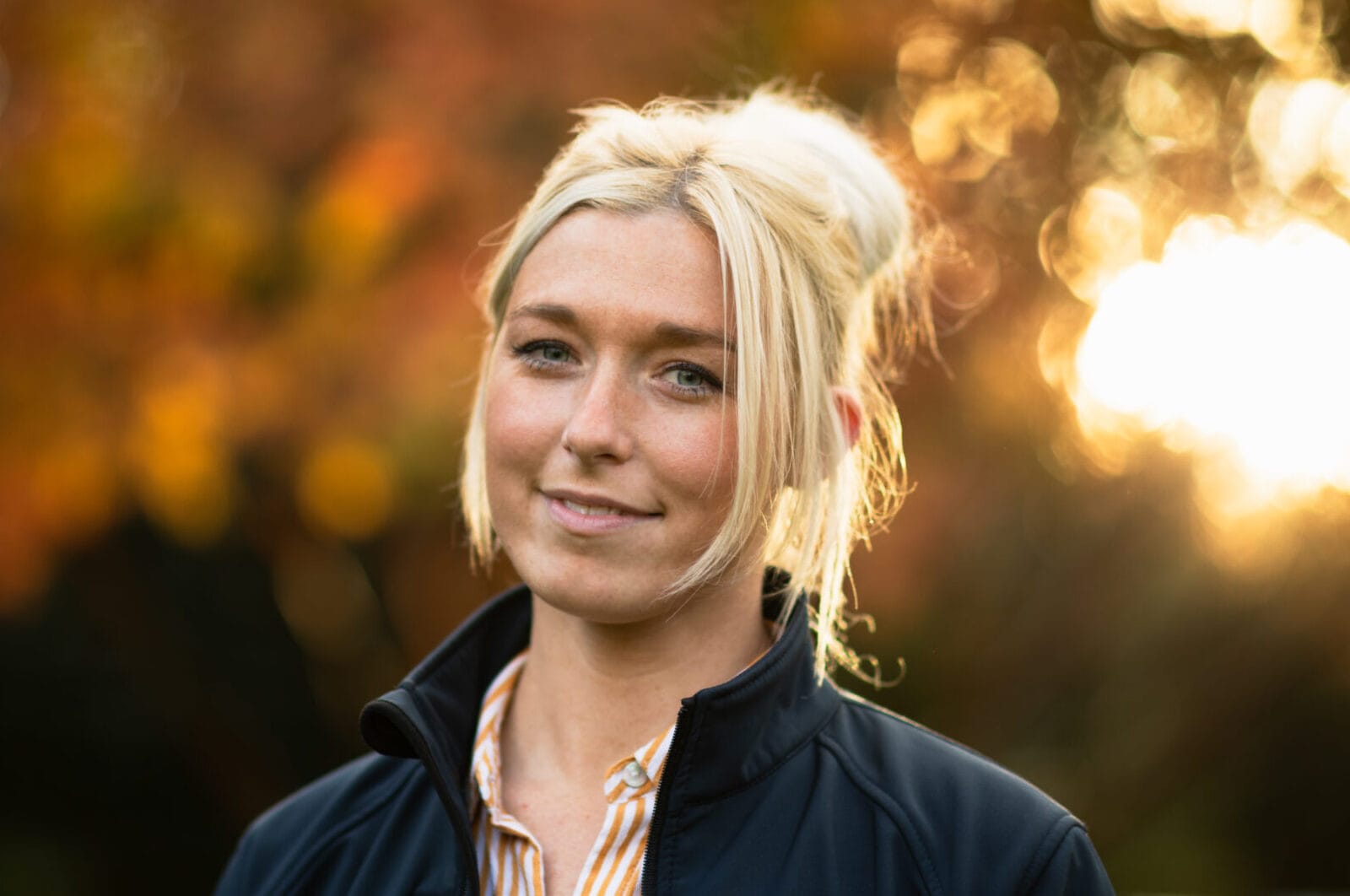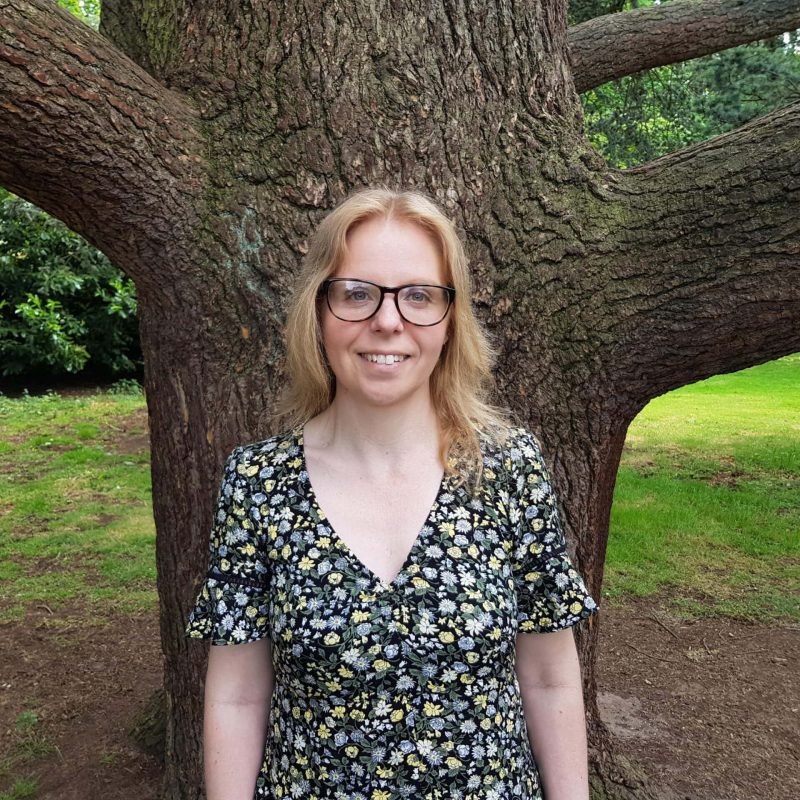Do you have the passion and vision to manage sustainable open spaces and green infrastructure?
On our landscape architecture course, you’ll gain the insights and experience to help ensure land, property and estates are managed and cared for as an integral part of our shared, sustainable future.


Study is based in our £9 million National Centre for Horticulture, the Environment and Sustainable Technology and you will learn first-hand from a team of deeply committed experts in their fields; an inspirational and award-winning team who will help you to flourish and support you to confidently pursue your purpose in a career intimately connected to the landscape.
Our curriculum is innovative and inspiring, built around the core principles of sustainability, function and conservation. Together with our emphasis on practical skills and all-round business awareness, you’ll be well-prepared for the challenges you’ll face in a career in the landscape management sector.



Karen Ollier | BSc Landscape Architecture
“I completed my BSc (Hons) Landscape Architecture degree at University Centre Reaseheath in 2022 and I am absolutely delighted to have now been offered an amazing opportunity to work as a Green Spaces Project Officer, using all the skills and experience I gained on my course.
“My role is very fast-paced and requires me to carry out a range of initiatives such as tree planting and peat restoration for our nature-based carbon capture project, with the primary aim of achieving our 2025 carbon neutral target.”
Read more at UCR Landscape Architecture graduate achieves dream career

Students undertake a credit-based work placement (travel arrangements at your own cost) to further enhance the development of professional knowledge. Delivery for this module will take place across the academic year. Students will be tasked to secure a placement during the period from October to March and a work placement induction week will take place the first week following the Easter break to provide students with an overview of placement requirements and responsibilities. The placement period will take place over 5 weeks following the induction week. Is it the responsibility of the student to identify and secure a suitable placement and to finance any associated costs. However some guidance may be sought for the course team.
Modules (all at 15 credits with the exception of the dissertation module and landscape major project which are both double credit modules at 30 credits).
Dissertation (Option)
Final Major Project (Option)
Landscape Assessment
Planning, Landscape and Environmental Legislation
Professional Practice and Ethical Frameworks
Project and Contract Management
Overall workload
Your overall workload consists of class contact hours, independent learning and assessment activity, plus field trips. Your actual contact hours may depend on which optional modules you select, but the following information gives an indication of how much time you will need to allocate to different activities at each year of the course:
Year 1:
27% of your time is spent in timetabled teaching and learning activity
Teaching, Learning and Assessment: 320 hours
Independent Study: 880 hours
Year 2:
24% of your time is spent in timetabled teaching and learning activity
Teaching, Learning and Assessment: 288 hours
Placement: 144 hours
Independent Study: 768 hours
Year 3:
17% of your time is spent in timetabled teaching and learning activity
Teaching, Learning and Assessment: 207 hours
Independent Study: 993 hours
Class sizes are on average between 5-12. Shared modules sessions are on average between 15-25.
Assessment Methods
Assessments are designed to encourage both academic skills and skills valued in the workplace. They include a combination of coursework and timed assessments in both independent and collaborative formats. Coursework may take many forms including: essays, reports, data processing, presentations, academic posters, seminar discussions, interviews, critical reviews and portfolios of evidence. Timed assessments will vary depending upon the nature of the module but will be problem-solving tasks dealing with real-life industry issues which support the development of industry and life skills.
Feedback
Formal feedback is supplied via Turnitin or directly from the module tutor. The majority of submissions are made via Turnitin and feedback for coursework is provided within twenty working days after the submission date. If for unforeseen reasons this is not possible, the reasons will be communicated to the students within 2 weeks and the feedback prioritised within the department.
Written feedback will be supported verbally should the student require clarification. Formative assessment feedback will be provided at the time of completion where possible, with more detailed summative feedback for reports.
Students will be able to access course timetables for the academic year in September.
Timetables are subject to change, but most students can expect to spend 3-3.5 days per week on campus.
During the level 5 module, work based learning, students are expected to complete at least 150 hours of work experience. This is completed alongside lectures and students are expected to attend all timetabled sessions.
This is a compulsory module; the students are expected to secure the work experience opportunity with guidance and support from staff.
Financial arrangements will be left to the discretion of the employer, to be agreed with the student, where significant learning takes place and training is provided the value of this experience must be taken into consideration.
Tuition Fees
As a student at UCR, you will have two main costs to meet; your tuition fees and living costs.
Our full-time tuition fees for UK and EU students, entering University, can be found on our student finance page. These fees are charged for each academic year of a course and are set by the college annually.
Tuition fees for international students can also be found on our student finance page.
Additional Costs
As part of your experience on the programme, you will need to set aside a budget for:
Memberships
Equipment Costs
Prices of equipment are subject to change dependent on retailer.
Apply directly through UCAS
KK32
A minimum of 112 UCAS points
September 2024
Full-time: 3 years
Here you will find useful information about the services and support available at University Centre Reaseheath. Click to expand each item:
University Centre Reaseheath is committed to providing additional financial support to those who need it. To find out about the bursary schemes available visit our additional financial support page.
For students to get the best out of their time at University Centre Reaseheath, we must both recognise that we owe obligations to each other. These obligations are set out in our UCR Student Contract. Before you accept an offer of a place at University Centre Reaseheath, it is important that you read these contract conditions. If you are going to be living in Halls of Residence, you will also need to read the Student Accommodation Licence Conditions. Both of these contracts can be found here.
Click here to view the University Centre Reaseheath Student Protection Plan.
All UCR students are given the opportunity to apply for residential accommodation. First year students are guaranteed accommodation and this offer is made to all applicants who live more than a reasonable daily travelling distance from Reaseheath (providing you have applied before the UCAS equal considerations deadline. For full details on our halls of residence visit our accommodation page.
We have a team of dedicated professionals on hand to offer you support. These include our Student Services Team, Inclusive Learning Team, Library and Learning Resources Team and the Reaseheath Careers Service. You can find more information on the support provided at Reaseheath on our support page.
University Centre Reaseheath is proud to welcome international students. For more information, please visit our international students page.
Andy Gibson | FdSc Garden and Landscape Design
After studying his Foundation Degree at UCR, Andy Gibson now has a varied and rewarding career as a Senior Landscape Architect. Watch his interview to hear more about his role, why he enjoyed studying at Reaseheath and his advice to other students.
You can discover what other UCR Landscape Architecture graduates have gone on to do in their careers by visiting our student success page.